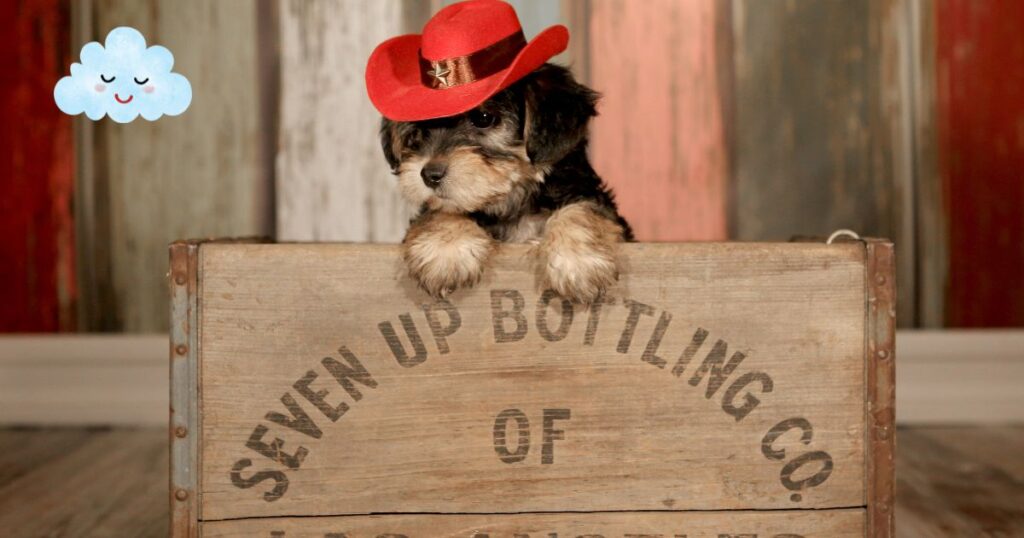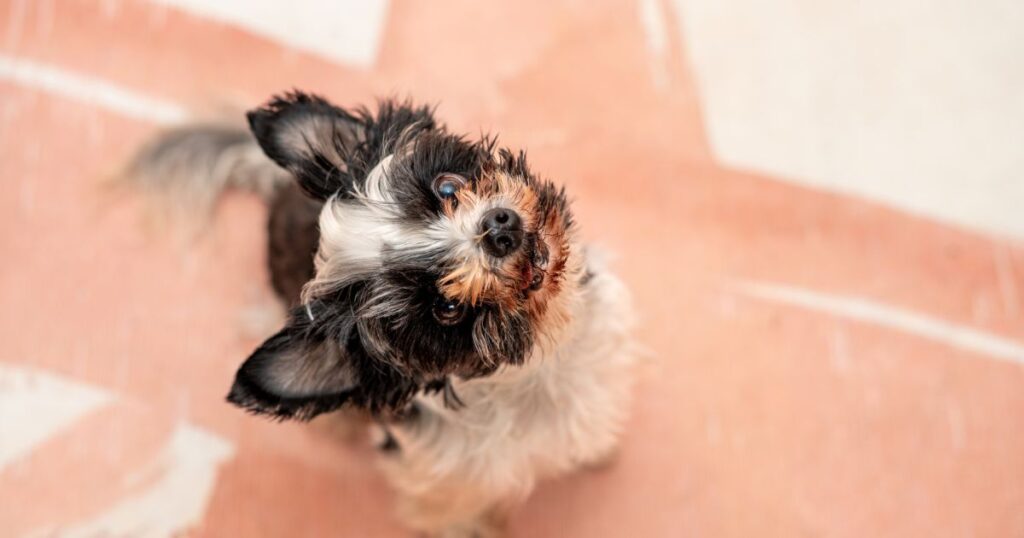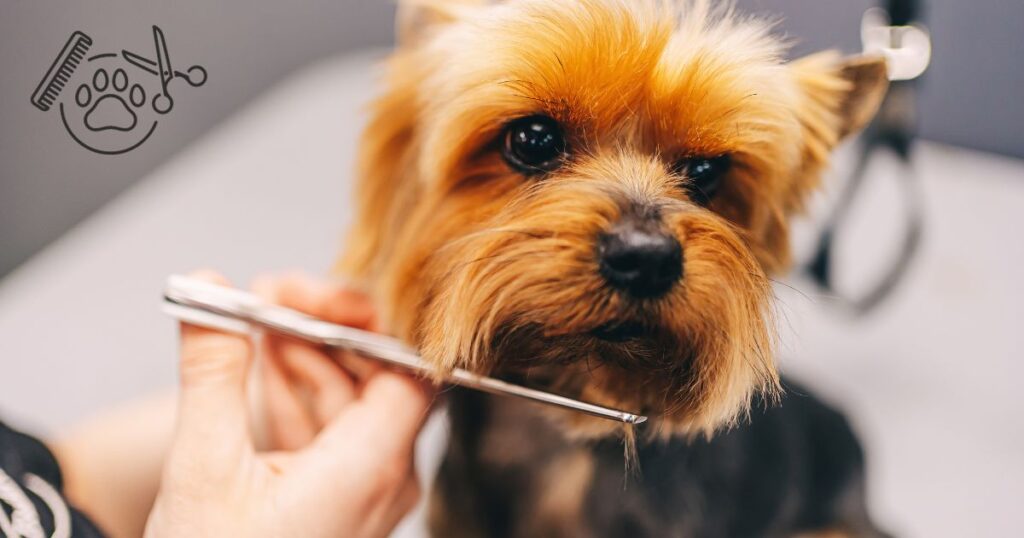Do Yorkies Snore? [Causes, Health Impacts, Preventive Measures]
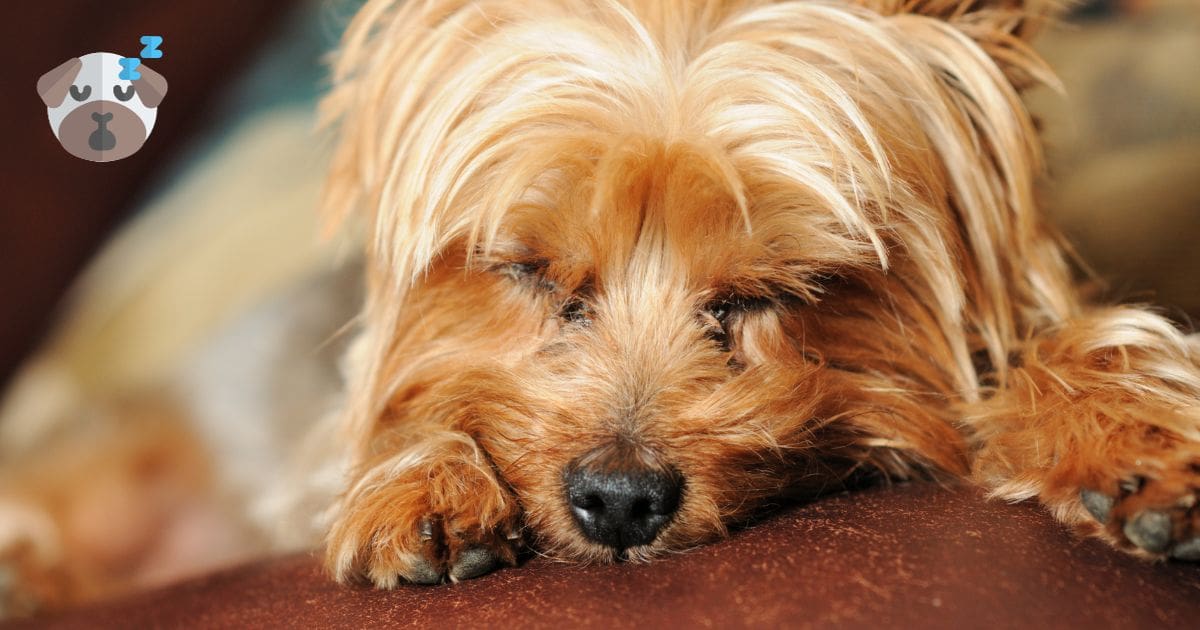
In the world of pet companionship, Yorkshire Terriers hold a special place. Their tiny frames and boundless energy have endeared them to countless households. But amidst their cuteness, a curious question arises: Do Yorkies snore? For those who share their lives with these lovable canines, this seemingly innocent question holds deeper significance.
From the first sleep after welcoming a Yorkie into your abode, you might encounter a gentle symphony of snores amidst their slumber. But why do these petite pooches make such sounds? Understanding the nuances of Yorkie snoring requires a blend of knowledge about their breed traits, sleeping habits, and possible health considerations.
Study About Snoring
Intriguingly, Yorkie snoring is more common than one might think. A study conducted by SnoreLab, while focusing on human snoring, shed light on the similarities in the soundscape of snoring shared between you and your beloved furry companions.
These symphonies of sound often arise from various factors, and it is Yorkie owners’ duty to comprehend the intricacies and ensure our Yorkies live their best lives.
You Should Know
Snoring, though often dismissed as a minor inconvenience, can sometimes indicate underlying factors that are worth the attention. Whether it is a matter of simple sleeping positions, anatomical attributes, or even potential health concerns, each snore tells a story that caretakers should interpret.
Yorkie Snoring Explained
Yorkie snoring, though it may initially raise concern, often falls within the realm of normal canine behavior.
Why Do Yorkies Snore?
The gentle snores that grace Yorkies’ slumber can be attributed to a variety of factors. One primary contributor is the unique anatomy of these miniature canines.
Their adorable, short snouts—typical of brachycephalic breeds—can sometimes lead to the partial obstruction of their airways during sleep. This, in turn, can create the distinct sounds we associate with snoring.
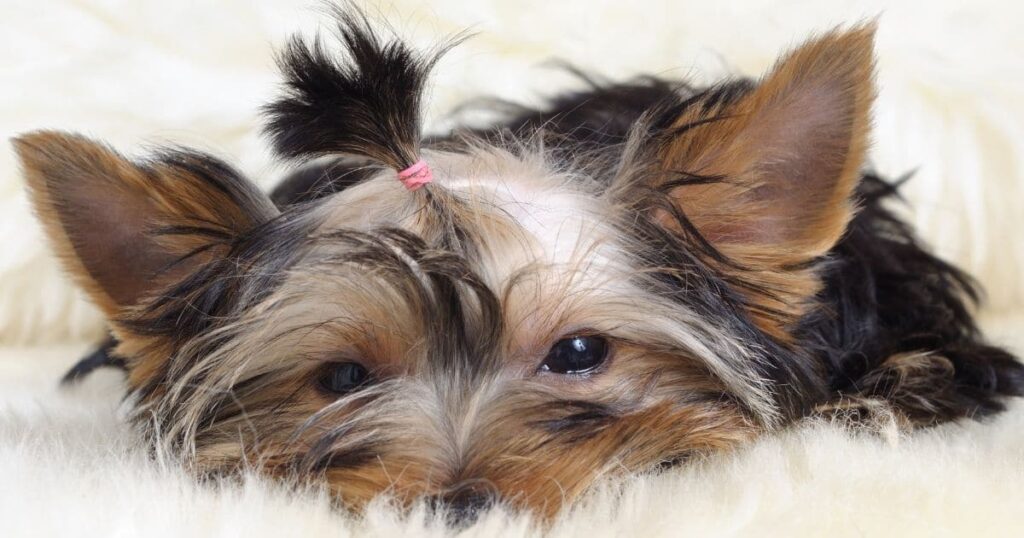
Additionally, Yorkies’ sleeping positions play a role. Just as we might find ourselves snoring more when lying on our backs, our furry friends may also exhibit this tendency. It is not uncommon to catch your Yorkie producing delicate snores as they nestle in a cozy position.
Types of Yorkie Snoring
Yorkie snoring presents itself in different forms, each with its own implications. Let’s explore these types to better understand the symphony of sounds that might accompany your pup’s slumber:
- Light Snoring: You might notice soft, intermittent snores that resemble gentle breathing. This is often the result of a relaxed and comfortable sleep position.
- Occasional Snoring: Sometimes, your Yorkie might exhibit snoring on a sporadic basis. This could be influenced by various factors such as fatigue or sleeping position.
- Excessive Snoring: While not as common, some Yorkies might produce more pronounced snores that occur frequently throughout their sleep. This type of snoring can be linked to certain anatomical attributes, such as elongated soft palates or narrow nasal passages.
Recognizing the Consequences
The sweet serenades of Yorkie snoring may lead us to wonder if it is indicative of a health concern. Rest assured, in many cases, snoring is simply a part of their sleep routine and is not a cause for alarm.
However, it is always wise to be attuned to your pet’s patterns. If your Yorkie suddenly starts snoring excessively when they didn’t before, it might be worth discussing with a veterinarian.
Simple adjustments can often alleviate snoring episodes. Ensuring your Yorkie maintains a healthy weight and encouraging them to sleep in positions that optimize airflow can make a notable difference.
Maintaining an ideal weight for your Yorkie is essential. Excess weight can put additional pressure on their airways, potentially exacerbating snoring.
Encourage your Yorkie to sleep in positions that promote optimal airflow. Elevating their head slightly can help keep air passages open.
Common Causes of Yorkie Snoring
As we continue our exploration of Yorkie snoring, we venture deeper into the factors that contribute to this melodic canine phenomenon. Yorkie snoring, while charming in its own way, can often be linked to specific causes that range from their sleeping positions to unique breed traits.
Sleeping Positions
Just like humans, a Yorkie’s choice of sleeping position can influence their likelihood of snoring. When your pup curls up in a tight ball or sprawls out flat on its back, its airways may experience some degree of obstruction. This can lead to the characteristic sounds of snoring as they draw in and release air during their slumber.
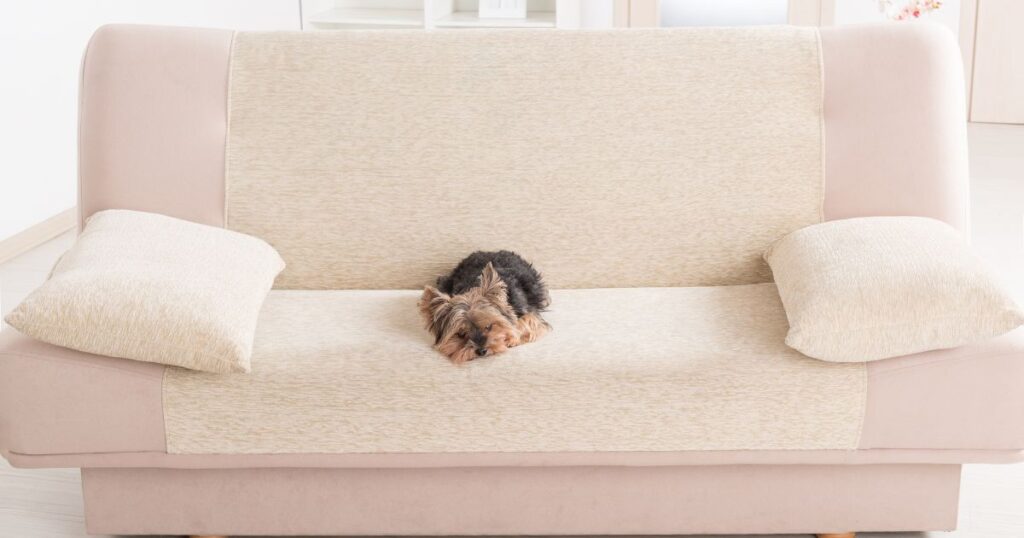
However, it is important to note that not all sleeping positions guarantee a serenade of snores. Some Yorkies have mastered the art of finding positions that align their airways comfortably, allowing them to slumber peacefully without a hint of snoring. Observing your Yorkie’s preferred sleeping positions can provide insights into their snoring tendencies.
Body Weight
Another noteworthy factor in Yorkie snoring is weight. Maintaining a healthy weight is not only essential for overall well-being but also plays a role in their sleep quality. Excess weight, especially around the neck area, can exert pressure on the airways, leading to partial obstruction and the ensuing sounds of snoring.
To mitigate this, ensuring that your Yorkie maintains an appropriate weight through a balanced diet and regular exercise is crucial. Consultation with a veterinarian can help you determine the ideal weight range for your pup and devise a plan to achieve it.
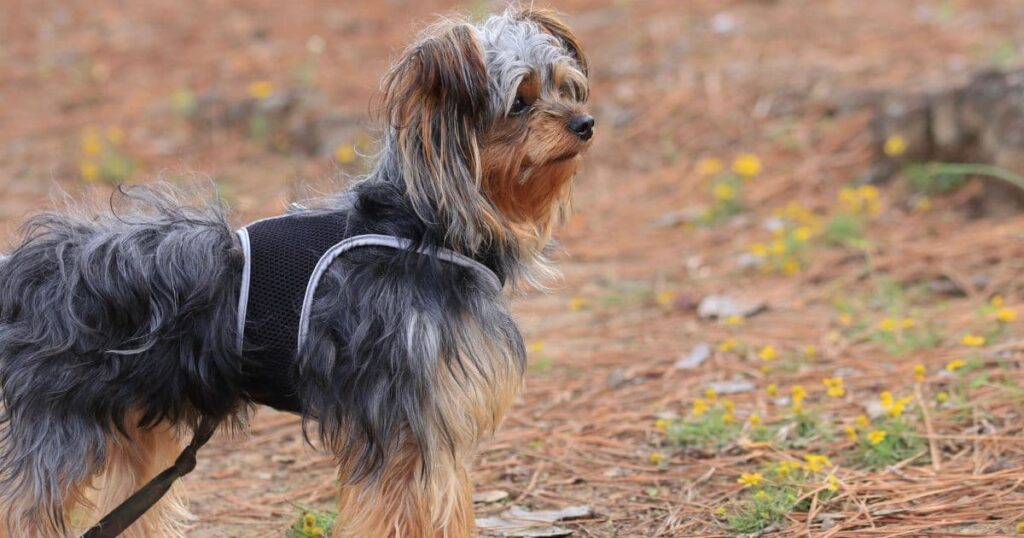
Brachycephalic Traits
The charming flat-faced features that make Yorkies irresistibly cute are also linked to their tendency to snore. Round-headed breeds, characterized by their short noses and flat faces, often experience anatomical challenges that can lead to airway obstruction during sleep. The same adorable traits that draw us to them can result in the gentle snores that grace their slumber.
The SnoreLab Study: Human Snoring and Yorkies
Interestingly, while we may think of snoring as a distinctly canine trait, there’s a surprising connection between human and Yorkie snoring. A study conducted by SnoreLab, focusing primarily on human snoring, revealed that there are striking similarities in the acoustic characteristics of snoring between humans and Yorkies.
This intriguing connection further underscores the need to understand and address Yorkie snoring for the well-being of our furry companions.
Health Impact of Yorkie Snoring
While snoring is often a benign and natural occurrence, it is crucial to delve into potential health concerns that could be associated with this melodic canine habit.
Respiratory Problems
While occasional snoring is a common phenomenon in many Yorkies, persistent or loud snoring could sometimes be indicative of underlying respiratory issues. Yorkies with compromised airways due to their unique anatomy, such as brachycephalic traits, might experience difficulty breathing during sleep. This could result in more pronounced snoring as their airways encounter resistance.
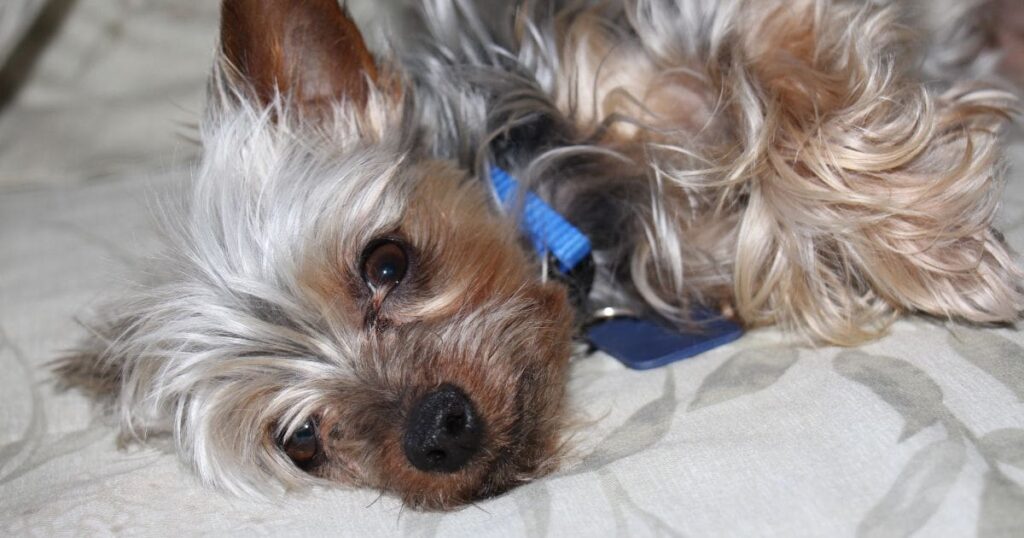
Brachycephalic traits refer to specific facial features that are shorter and flatter than those of other dog breeds. In Yorkies, these traits contribute to their adorable appearance, with their flat faces and short snouts.
While endearing, these features can pose challenges to their respiratory system. The shortened airways and restricted nasal passages can lead to increased airway resistance, making breathing more difficult, especially during sleep when muscles relax.
Due to their unique anatomy, Yorkies with brachycephalic syndrome may be more prone to snoring. When the airways encounter resistance caused by these traits, the airflow can become turbulent, leading to distinctive snoring sounds. The obstruction of the air passages during sleep can result in vibrations that manifest as snores.
It is essential to keep a watchful eye on any changes in your Yorkie’s snoring patterns. If you notice a sudden increase in volume, frequency, or intensity of snoring, it is advisable to consult a veterinarian. These professionals can conduct thorough evaluations to determine whether there are any respiratory concerns that need attention.
Tracheal Collapse
Tracheal collapse is another condition that can potentially contribute to snoring in Yorkies. This condition involves the weakening of the tracheal rings, which are responsible for maintaining the shape of the windpipe.
When these rings lose their structural integrity, the trachea can collapse or narrow, making it harder for air to pass through. This can lead to snoring, coughing, and even difficulty breathing.
While not all Yorkies with snoring exhibit tracheal collapse, it is worth considering if your pup shows persistent symptoms. If your Yorkie seems to struggle with breathing, especially during exercise or excitement, it is time to consult a veterinarian. They can perform diagnostic tests to identify the presence of tracheal collapse and recommend appropriate management strategies.
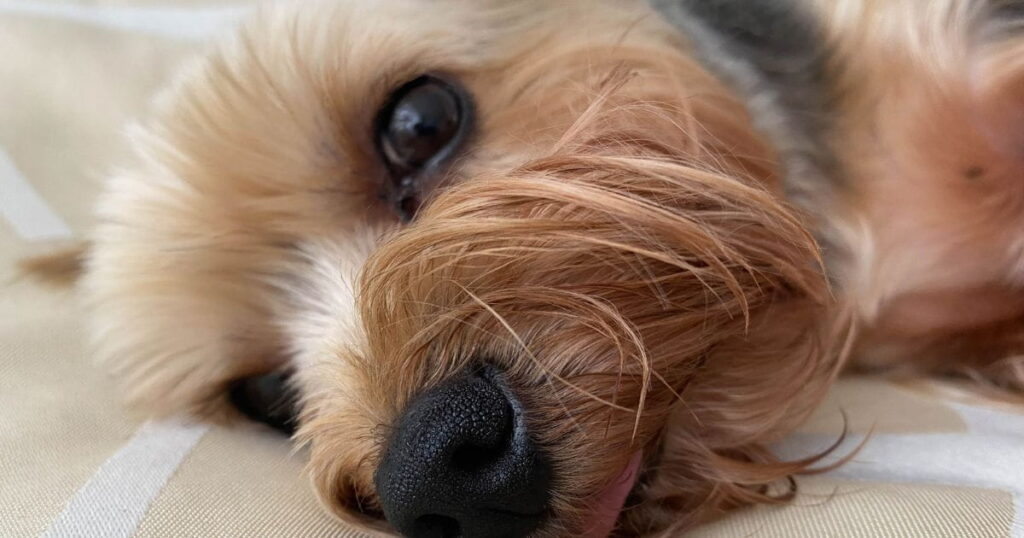
Seeking Veterinary Guidance
The importance of observing your Yorkie’s snoring patterns cannot be stressed enough. Our canine companions communicate through their behaviors, and changes in snoring habits could be a signal of an underlying health issue.
While snoring itself may not always warrant immediate concern, recognizing potential health implications empowers us to be proactive caregivers.
Seeking veterinary advice when necessary is a crucial step in ensuring our Yorkies’ well-being. Veterinarians possess the expertise to perform assessments, recommend diagnostic tests, and provide tailored guidance based on your pup’s individual needs.
Tips & Preventive Measures for Yorkie Snoring
While snoring is a natural part of many Yorkies’ lives, there are proactive steps we can take to enhance their sleep quality and overall well-being.
Create a Sleep Environment
Creating a comfortable and peaceful sleep environment for your Yorkie is a fundamental step in managing snoring. Just as we appreciate a serene ambiance for restful sleep, our furry companions also benefit from a conducive setting. Here’s how you can make bedtime a soothing experience for your pup:
- Soft and Supportive Bed: Invest in a soft and supportive bed that aligns with your Yorkie’s preferred sleeping positions. A bed that cushions their joints and spine can contribute to better sleep posture and potentially reduce snoring.
- Elevated Head Position: Elevating your Yorkie’s head slightly can promote better airflow and reduce the likelihood of airway obstruction. Placing a small pillow or cushion under their head can achieve this elevation.
- Minimal Noise and Disturbances: Ensure that the sleep environment is quiet and free from disruptive noises. Yorkies are sensitive creatures, and a calm ambiance can enhance their sleep quality.
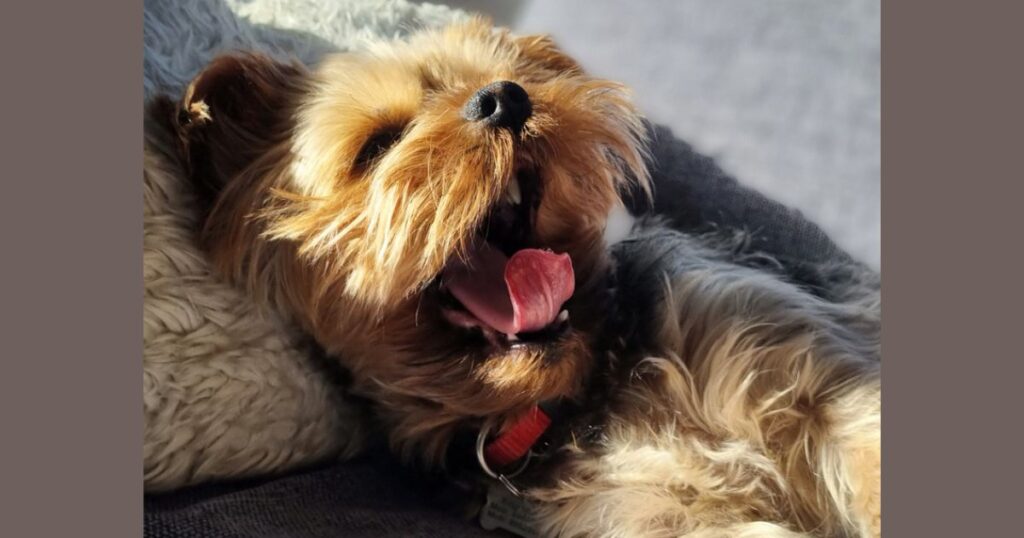
Maintain a Healthy Weight
Weight management plays a significant role in curbing snoring tendencies in Yorkies. Excess weight, particularly around the neck and throat area, can exert pressure on the airways, leading to heightened snoring. Here’s how you can maintain an optimal weight for your pup:
- Balanced Diet: A diet rich in essential nutrients supports overall health and weight management. Incorporate high-quality protein sources, whole grains, and a variety of fruits and vegetables. Avoid overfeeding and opt for portion control to prevent weight gain.
- Regular Exercise: Engage your Yorkie in regular exercise routines that align with their energy levels and physical condition. Exercise not only helps manage weight but also promotes cardiovascular health. Daily walks, interactive play sessions, and engaging toys can keep them active and mentally stimulated.
Encourage Proper Sleeping Positions
Just as human sleep positions can influence snoring, the same holds true for our Yorkies. Encouraging them to sleep in positions that support unobstructed airflow can make a difference. Here’s how you can guide their sleeping habits:
- Side Sleeping: Gently guide your Yorkie to sleep on their side. This position often promotes better airflow through the airways. When lying on their side, the air passages are less likely to become constricted, reducing the vibrations that lead to snoring. A soft and supportive bed can enhance their comfort in this position.
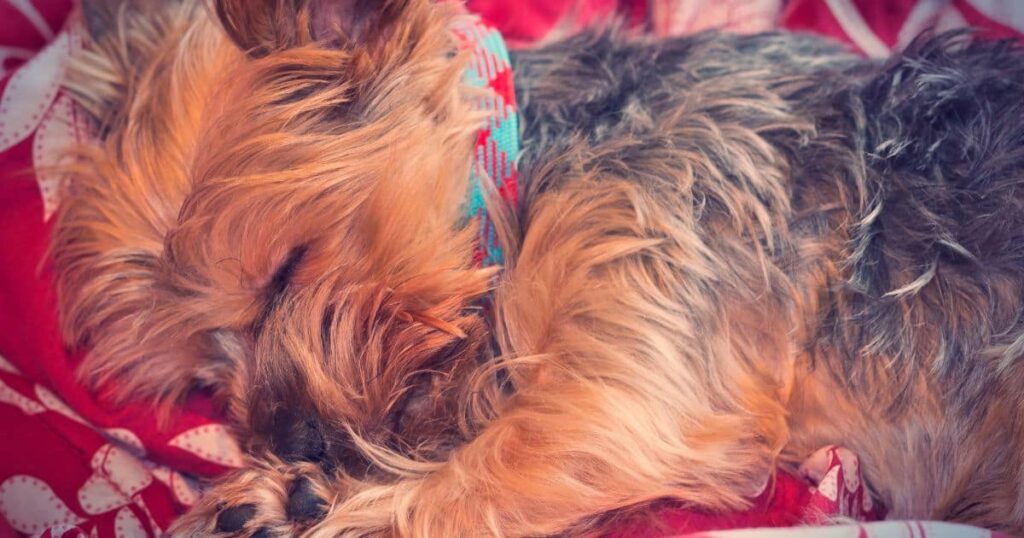
- Raised Head: If your pup prefers sleeping on their back, consider elevating their head slightly with a small pillow or cushion. This elevation prevents the tongue and soft palate from collapsing to the back of the throat, reducing the risk of airway blockage and snoring. It is essential to ensure that the elevation is comfortable and doesn’t strain their neck.
Collaborate with Your Veterinarian
While these tips and measures can contribute to managing snoring, it is important to collaborate with your veterinarian. They can offer personalized advice based on your Yorkie’s health status, breed traits, and individual needs. Regular check-ups allow them to monitor your pup’s well-being and address any concerns that may arise.
The harmony of a conducive sleep environment, proper weight management, and attentive guidance ensure that your Yorkie’s serenades remain delightful and their slumbers peaceful.
Difference Between Snoring and Reverse Sneezing
Reverse sneezing, which is a puzzle that occasionally leaves pet owners perplexed. We will embark on a journey to demystify reverse sneezing, draw a clear line between this behavior and snoring, and offer valuable insights into effectively managing this innocuous yet occasionally baffling conduct.
What is Reverse Sneezing?
Reverse sneezing, also known as pharyngeal gag reflex, is a common occurrence in dogs, including Yorkies. Unlike snoring, which is associated with the vibrations of soft tissues during breathing, reverse sneezing involves a rapid inhalation of air through the nose.
This inhalation creates a distinctive snorting or honking sound, often accompanied by the dog extending their neck and head backward.
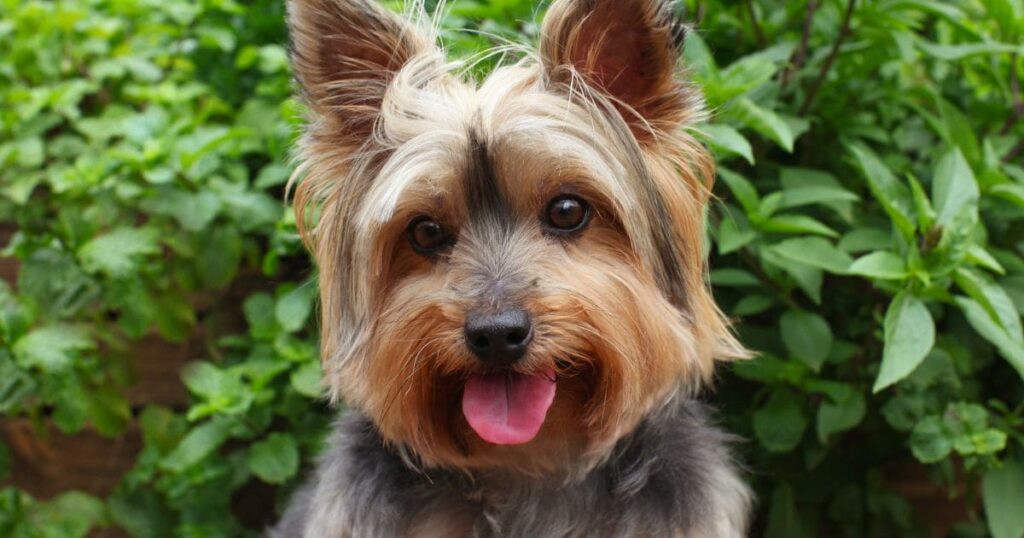
Why the Confusion?
Reverse sneezing and snoring can be easily confused due to their auditory similarities. However, they have distinct triggers and mechanisms.
While snoring occurs during sleep and is related to the relaxation of tissues in the throat, reverse sneezing typically happens when a dog becomes excited, experiences irritants in the nasal passages, or engages in vigorous sniffing.
It is to be noted that reverse sneezing is not related to breathing difficulties, and dogs resume normal breathing once the episode subsides.
How to Differentiate?
To differentiate between snoring and reverse sneezing in your Yorkie, consider the following factors:
- Context: Snoring usually occurs during sleep, while reverse sneezing often happens while the dog is awake and active.
- Sound: Snoring produces a consistent, rhythmic sound, whereas reverse sneezing produces a rapid, snorting sound.
- Behavior: During snoring, your Yorkie remains in a resting position. Reverse sneezing is accompanied by a sudden extension of the neck and head.
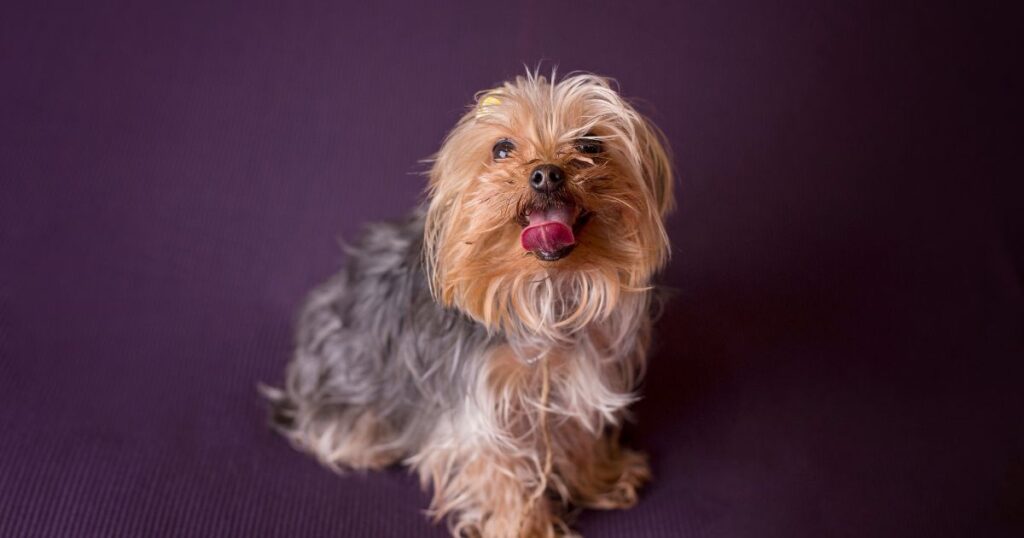
Tips to Manage Reverse Sneezing
While reverse sneezing can be alarming to witness, it is generally harmless and doesn’t require medical intervention. If your Yorkie experiences a reverse sneezing episode, you can help by gently massaging their throat or offering a sip of water.
In more persistent cases, distracting your pup with a treat or gently pinching their nostrils for a second can help halt the episode.
However, remember that reverse sneezing is a normal behavior in dogs, including Yorkies. If you notice a sudden increase in the frequency or intensity of these episodes, or if your Yorkie displays other signs of discomfort, consult your veterinarian. They can assess your pup’s health and provide guidance on managing any underlying factors.
Frequently Asked Questions
Do Yorkies have breathing issues during sleep?
Yes, some Yorkies may experience breathing issues during sleep, particularly those with certain anatomical features like brachycephalic traits. These traits can lead to airway obstruction, causing snoring or labored breathing. Also, make sure to monitor your Yorkie’s snoring patterns and seek veterinary advice if you notice any changes or signs of distress.
Are there any home remedies to alleviate Yorkie snoring?
While there is no one-size-fits-all solution, several home remedies can help alleviate Yorkie snoring. These include maintaining a healthy weight, providing a comfortable sleep environment, and gently encouraging side sleeping. If snoring persists or worsens, consult a veterinarian for personalized guidance.
How to help a snoring Yorkie sleep better?
To help your snoring Yorkie sleep better, consider creating a conducive sleep environment. Ensure the sleeping area is quiet, dark, and comfortable. Additionally, encourage your Yorkie to sleep on their side, which can promote better airflow. Providing regular exercise and a balanced diet can also contribute to overall health and quality sleep.
Do Yorkies snore more when they are overweight?
Yes, Yorkies, like many other dog breeds, can snore more when they are overweight. Excess weight can put pressure on the airways, leading to partial obstruction and increased snoring. Maintaining a healthy weight through proper diet and exercise can help reduce snoring episodes.
What can I do about my Yorkie’s loud snoring?
Yorkies may snore loudly. Loud snoring in Yorkies can be attributed to various factors, including anatomical traits, allergies, or respiratory issues. To address loud snoring, start by ensuring your Yorkie maintains a healthy weight and sleeps in positions that optimize airflow. If the issue persists, consult a veterinarian to rule out any underlying health concerns.
Is it normal for Yorkies to snore at night?
Yes, it is normal for Yorkies to snore occasionally during sleep, especially if they have brachycephalic traits or other factors that can contribute to airway obstruction. However, persistent or excessively loud snoring could indicate underlying respiratory issues. If you’re concerned, it is recommended to seek professional advice to ensure your Yorkie’s well-being.
Nurturing Your Yorkie’s Sleep
Summarizing our exploration of Yorkie snoring, we have unveiled the factors behind this endearing trait. Regular monitoring of snoring patterns is pivotal, with professional guidance to address concerns.
Cherish your Yorkie’s uniqueness through attentive care, ensuring their well-being and peaceful sleep. As responsible pet owners, our commitment ensures our beloved companions thrive in every slumber.



